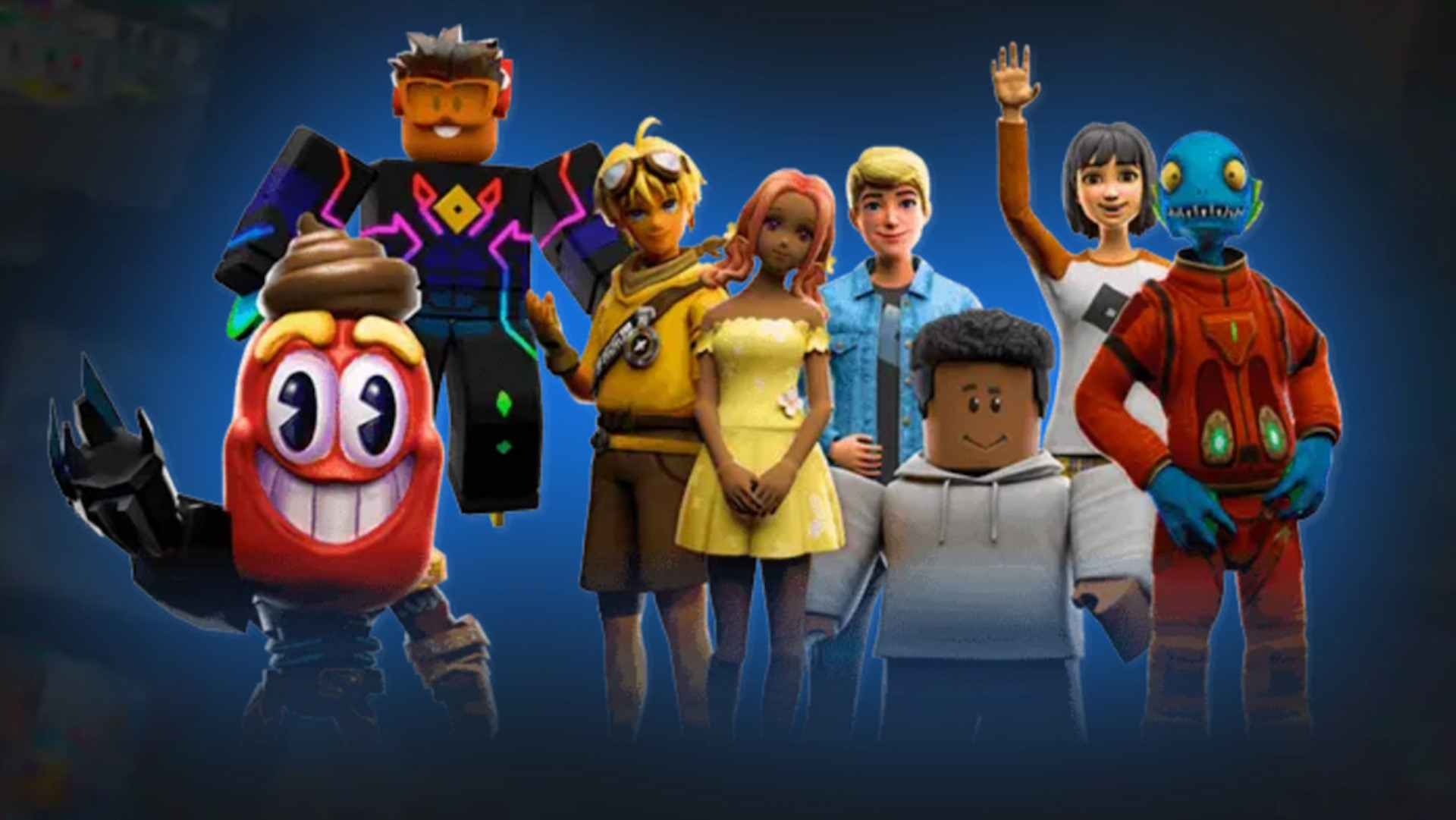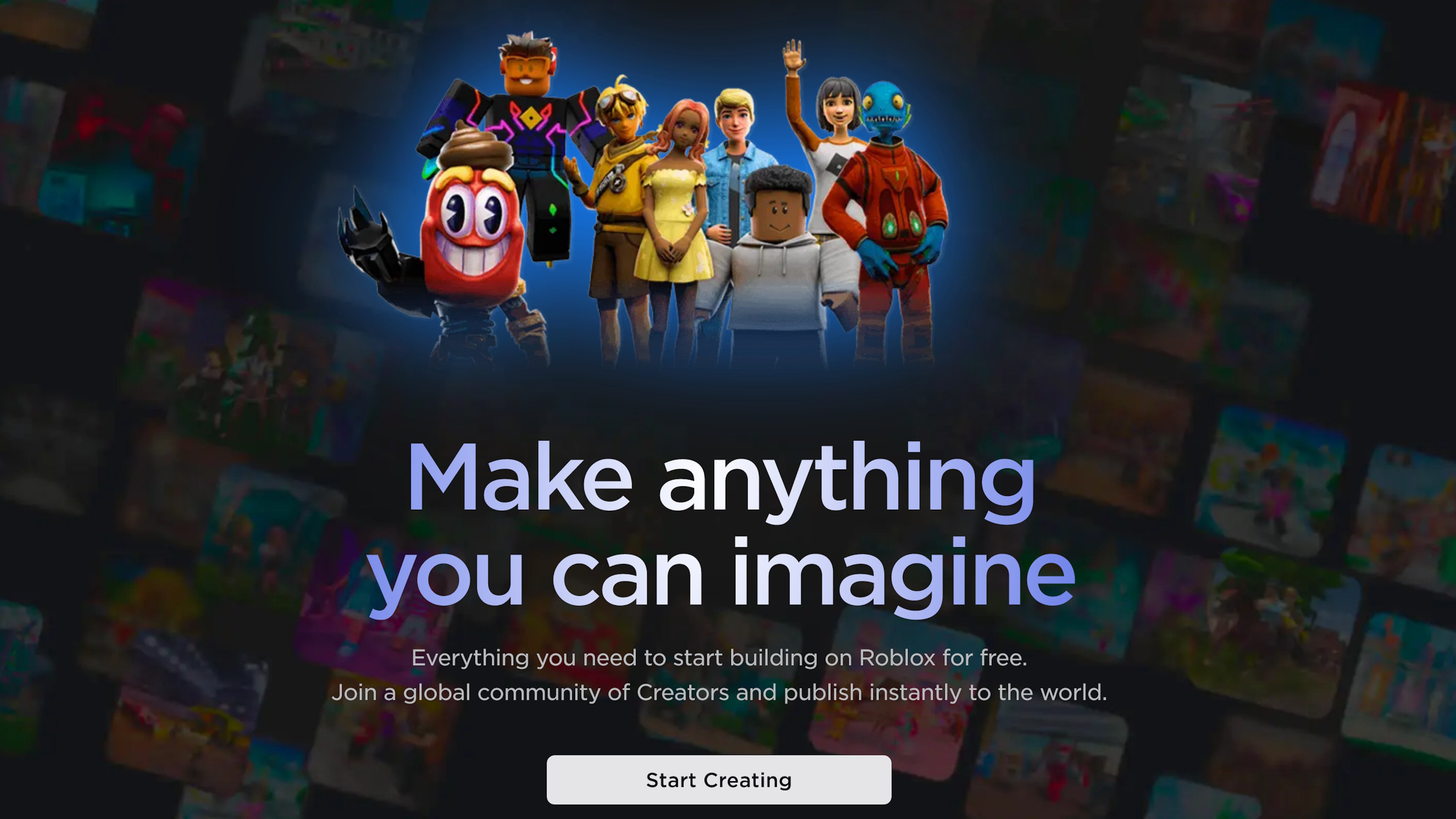Roblox executive says the company isn't 'exploiting child labor,' it's just 'offering people anywhere in the world the capability to get a job'
What a year, eh?

Acknowledging that your company's practices could be seen as exploiting child labor is a bold move, even if you go on to say that you actually think you're doing a good thing. It's a gambit that Roblox Studio head Stefano Corazza took in a recent GDC interview with Eurogamer about the company's reputation for taking advantage of work that's often produced by children.
Roblox is immensely popular with kids, who use it not just to play games but to make and share them with other users. Those creations can also be monetized, earning their makers "Robux" that can be cashed out for real money—from which Roblox takes a healthy cut.
In February, Roblox was sued over allegations that it is "exploiting child labor and offering children nearly worthless digital currency for their labor," but questions about its practices go back much further.
In 2021, for instance, People Make Games published an in-depth report on YouTube entitled "how Roblox is exploiting young game developers," which it followed up with another on the platform's collectibles and shady black market.
Roblox doesn't seem inclined to alter course. In March, the company announced new AI-powered modeling tools that it said will provide "opportunities to create, scale, and monetize on the platform in support of our vision to empower the creation of anything, anywhere, by anyone."

"You can say, 'Okay, we are exploiting, you know, child labour,' right?" Corazza told Eurogamer. "Or, you can say: we are offering people anywhere in the world the capability to get a job, and even like an income. So, I can be like 15 years old, in Indonesia, living in a slum, and then now, with just a laptop, I can create something, make money and then sustain my life."
Corazza further defended Roblox's practices by noting that the company has heard from some of the more popular teenage game developers on the platform, and apparently "they didn't feel like they were exploited."
Keep up to date with the most important stories and the best deals, as picked by the PC Gamer team.
"They felt like, 'Oh my god, this was the biggest gift, all of a sudden I could create something, I had millions of users, I made so much money I could retire'," Corazza said. "So I focus more on the amount of money that we distribute every year to creators, which is now getting close to like a billion dollars, which is phenomenal.
"And imagine like, the millions of kids that learn how to code every month. We have millions of creators in Roblox Studio. They learn Lua scripting, which is pretty close to Python—you can get a job in the tech industry in the future, and be like, 'Hey, I'm a programmer,' right?"
I'm not so sure about that part of it, especially for kids living in Indonesian slums, but there's no question that Roblox has doled out a lot of money to content creators. The company paid out $741 million to game makers in 2023, on total bookings (that's revenues plus the total value of all deals made during the period) of $3.5 billion; the company is currently valued at $23 billion.
A PR representative monitoring the interview at one point interjected to note that "the vast majority of people that are earning money on Roblox are over the age of 18." Which strikes me as rather odd: If kids making content for your platform is okay and even a good thing, why emphasize that it's also a relative rarity? Unless it's not a good thing, I suppose. As Corazza himself put it, you can say Roblox is exploiting child labor—and I feel like if you're in a place where, y'know, you can say that, then maybe it's time to give the whole thing a re-think.
Correction: The article originally stated that Roblox had hired some teenage game makers, but the company reached out to state that this was a misquote: Corazza said Roblox has "heard from" teenage game makers. Roblox clarified that it does not hire minors to work on the game.
Roblox codes: Cross-game freebies
Dress to Impress codes: Get fast fashion
Blue Lock Rivals codes: Gear for the pitch
Blox Fruits codes: Double XP and free stats
Fisch codes: Bring the best bait
Arise Crossover codes: Beat 'em up gear

Andy has been gaming on PCs from the very beginning, starting as a youngster with text adventures and primitive action games on a cassette-based TRS80. From there he graduated to the glory days of Sierra Online adventures and Microprose sims, ran a local BBS, learned how to build PCs, and developed a longstanding love of RPGs, immersive sims, and shooters. He began writing videogame news in 2007 for The Escapist and somehow managed to avoid getting fired until 2014, when he joined the storied ranks of PC Gamer. He covers all aspects of the industry, from new game announcements and patch notes to legal disputes, Twitch beefs, esports, and Henry Cavill. Lots of Henry Cavill.


